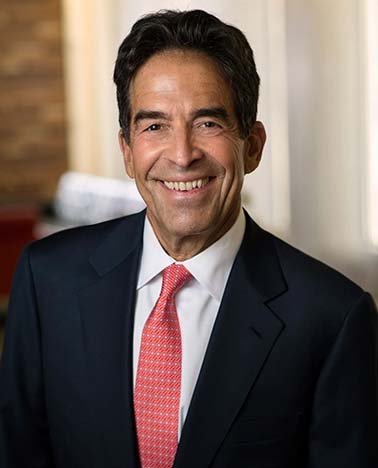2022 will probably be a lot like 2021, only more so. With most key federal positions filled, the Biden Administration is in a position to ramp up enforcement over the next twelve months. A rundown of top white-collar crime enforcement issues from 2021 informs the enforcement trends we expect to see more of in 2022.
With courts and lawyers adjusting to the “new normal,” a number of high-profile white-collar trials were conducted in 2021. In October, the first trial related to Operation Varsity Blues, the college admissions scandal, concluded, with both defendants being found guilty of conspiracy and wire fraud and mail fraud. More than 50 individuals have been charged in connection with the case, of which the overwhelming majority have pleaded guilty.
https://twitter.com/ChrisVillani44/status/1469003648646754313
A handful of additional trials are scheduled to continue into 2022. The highly publicized trial of Theranos founder Elizabeth Holmes continued in December, with Holmes testifying in her own defense. She is accused of misleading investors and patients about Theranos’s financials and technology, and the U.S. Securities and Exchange Commission (SEC) has charged Holmes with 11 counts of wire fraud and conspiracy to commit wire fraud.
We also saw high-profile indictments in 2021: New York prosecutors charged the Trump Organization and its chief financial officer, Allen Weisselberg, in a 15-count indictment related to an over decade-long tax evasion scheme and are continuing to investigate the organization’s conduct. The case is currently scheduled to go to trial in the summer of 2022.
With the change in presidential administration, there has been an increase in investigations and new enforcement actions. The SEC has said that the enforcement division brought more standalone enforcement actions in 2021 than it did the previous year, among them cases involving auditor misconduct, insider trading, bribery schemes and misleading claims surrounding special purpose acquisition company (SPAC) transactions.
We expect this trend of increasing regulatory oversight will continue to pick up speed in 2022.
Gurbir Grewal, director of the SEC’s enforcement division, has announced areas of focus for the SEC, including:
- Emphasizing corporate responsibility;
- Holding gatekeepers, such as lawyers and auditing partners at major accounting firms, accountable;
- Crafting appropriate remedies, including requiring admissions of wrongdoing, barring culpable officers and directors from serving at any public company, enjoining specific conduct in the future and mandating that companies undertake to hire an independent compliance consultant; and
- Trusting and empowering SEC staff to, among other things, adjust certain substantive decision-making processes, including the Wells process.
Moreover, Deputy Attorney General Lisa Monaco recently announced three significant policy changes to strengthen her office’s efforts to combat corporate and white-collar crime.
First, in order to be eligible for cooperation credit, a company must provide the U.S. Department of Justice (DOJ) with all non-privileged information about individuals involved in or responsible for the misconduct at issue regardless of their position, status or seniority, lowering the threshold for disclosure from only those individuals whom the company or its counsel deemed to be “substantially involved” in the misconduct.
Second, in determining the appropriate resolution for a corporate defendant, prosecutors will now consider a company’s entire criminal, civil and regulatory history, regardless of whether the previous conduct was similar to that currently at issue. If a company now faces a Foreign Corrupt Practices Act (FCPA) probe, the fact that it previously had antitrust or tax issues will be considered in determining whether the company has an appropriate compliance program and corporate culture to prevent corporate recidivism.
Third, Monaco expressly rescinded any guidance from prior administrations, signaling that monitorships are the exception or otherwise disfavored. She concluded by advising that companies need to actively review their compliance programs to ensure they adequately monitor for and remediate misconduct, and cautioning that these three policy changes were a start — and not the end — of this administration’s actions to better combat corporate crime.
With these signals from key regulators, here are our predictions for areas of interest in 2022.
Wall Street & Financial Institutions
With many key positions within the Biden administration now filled, 2022 is likely to bear the fruit of more robust investigation of Wall Street and large financial institutions. This is expected to result in more actions to prosecute insider trading, FCPA and criminal antitrust cases. Regulators are further expected to continue to wield the Anti-Money Laundering Act, which took effect Jan. 1, 2021 and updated the Bank Secrecy Act to apply to contemporary areas of concern, such as the use of cryptocurrency.
Diversity, Equity & Inclusion (DEI)
DEI has become critically important to many investors and consumers making decisions about where and how they use their capital. Through, for example, shareholder proposals, investors have pushed the public companies in which they own a stake to make meaningful commitments to DEI, including by providing reporting.
Some public companies have happily embraced DEI; others have been forced to. Recently, the Nasdaq securities exchange has adopted board diversity rules, requiring Nasdaq-listed companies to disclose annually demographic board composition information, and, if a company lacks at least two diverse directors — that is, one self-identified as female and one self-identified as a member of an underrepresented racial or ethnic minority and/or LGBTQ+ — then it must explain why its board lacks diversity.
As a result, in addition to investigating and prosecuting actions pursuant to well-established frameworks that prohibit discrimination — including the Civil Rights Act of 1964, the anti-discrimination provision of the Immigration and Nationality Act, and state and municipal human rights or anti-discrimination laws — regulators are focusing on new ways to encourage, if not enforce, DEI compliance.
For example, in 2021, the Federal Deposit Insurance Corporation’s (FDIC) Office of Minority and Women Inclusion invoked Section 342 of the Dodd-Frank Wall Street Reform and Consumer Protection Act of 2010 and encouraged all FDIC-supervised financial institutions with 100 or more employees to submit voluntary self-assessments of their diversity policies and practices.
Similarly, the superintendent of the New York State Department of Financial Services (NYDFS), issued guidance to the chief executive officers or the equivalents of New York State-regulated banking institutions and regulated non-depository financial institutions, stating that NYDFS would collect and publish data related to the diversity of corporate boards and management pursuant to her powers under Banking Law § 37(3), which permits the superintendent to require any banking organization to make special reports to her at such times as she may prescribe. The data is expected to be published on an aggregate basis in the first quarter of 2022.
We expect regulators to construe existing rules creatively to promote DEI at regulated companies and to consider new rules or legislation to specifically address DEI goals.
It is further worth noting that companies should continue to be mindful of the potential reputational risk they face for failing to prioritize advancing DEI. This may, in turn, lead to regulator scrutiny or unfavorably impact discretionary decisions by regulators involved in unrelated investigations and enforcement.
Environmental, Social & Governance (ESG)
More broadly, investors have also advocated for companies to embrace and report on ESG. And companies are responding; over 90 percent of the S&P 500 Companies and 70 percent of the Russell 1000 Index companies published sustainability reports in 2020. This investor interest and companies’ responses have caught the attention of Gary Gensler, SEC chairman. This summer, he revealed he had asked SEC staff to develop a mandatory climate risk disclosure rule proposal for the SEC’s consideration by the end of the 2021. In addition to administrative interest, there has been a legislative attempt at mandating ESG disclosures. Though not yet successful, this push is expected to continue in 2022.
COVID-19-Related Fraud
As the United States continues to combat rising cases of COVID-19, regulators will continue to prosecute pandemic-related crimes. Among them are:
- Wire fraud, bank fraud and False Claims Act cases concerning misrepresentations made by companies seeking Paycheck Protection Program (PPP) loans, organized criminals engaging in coordinated efforts to carry out a scheme to defraud and misrepresentations related to loan forgiveness, such as whether the PPP loan borrower used the funds as required or for an unauthorized purpose instead;
- Price-gouging of personal protective equipment (PPE);
- Cyber fraud and phishing scams related to U.S. Small Business Administration loans;
- Fraud schemes related to falsified COVID-19 vaccination cards; and
- Securities fraud, including cases related to whether companies issued materially misleading disclosures about the risk that the COVID-19 pandemic posed to a company’s operations.
Cryptocurrency & Cyber Fraud
Next year is likely to see enhanced regulation of cryptocurrencies, including more frequent and deeper inquiries by both federal and state regulators in this space. Recently, the DOJ seized $56 million in cryptocurrency to compensate victims of a fraud scheme related to BitConnect, a cryptocurrency. While this liquidation is the largest single recovery of a cryptocurrency fraud by U.S. authorities to date, it is likely not the ceiling. Moreover, given the proliferation of cyber fraud and the volatility of cryptocurrency, this will likely be a subject of federal and state legislation in 2022.
Ephemeral Messaging Systems
Companies should focus on (as will regulators) their use of ephemeral messaging systems. Both companies and regulators should be mindful of the benefits and risks of ephemeral messaging, and create clear guidance regarding same. For example, SEC director of enforcement has made plain that if, while litigation is anticipated or pending, corporations or individuals have deliberately used the sort of ephemeral technology that allows messages to disappear, the SEC may conclude that spoliation of evidence has occurred and ask the court for adverse inferences or other appropriate relief.



 Michael Himmel
Michael Himmel Rachel Maimin
Rachel Maimin Rebecca Ryan
Rebecca Ryan








